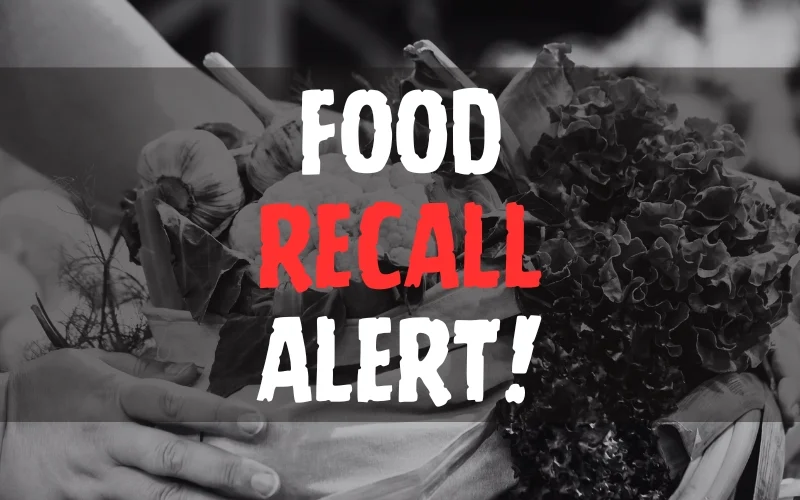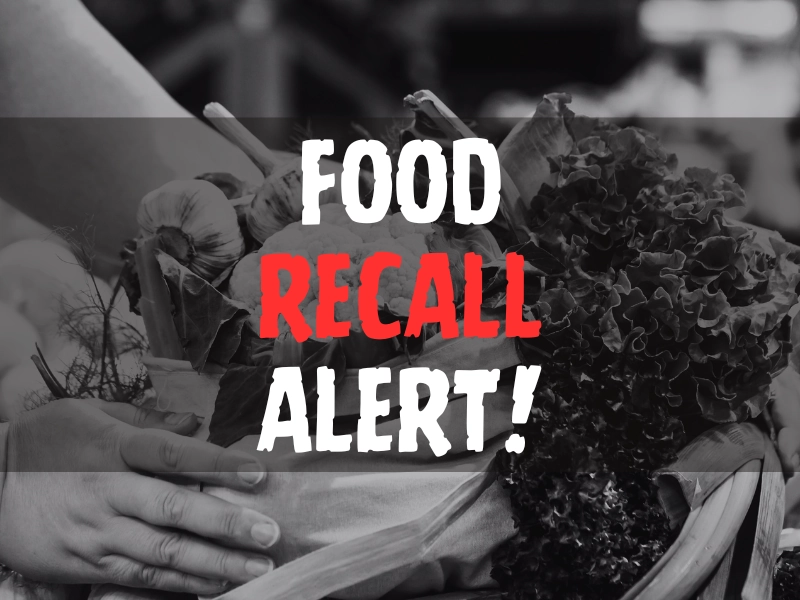Clearwater, FL — FDA: Bagged Salads Recalled for Undeclared Allergens
3Sep
Clearwater, FL (September 2nd, 2025) – A salad recall has been issued after the FDA reported that Taylor Farms Honey Balsamic Salad Kits may contain undeclared soy and sesame allergens due to a packaging mix-up. Consumers in several states, including Florida, are affected.

The recent salad recall has alarmed consumers across the U.S., emphasizing the ongoing risks associated with mislabeled or contaminated food products. Pre-packaged foods, like the Taylor Farms Honey Balsamic Salad Kits, are commonly purchased for convenience, but when allergens are left off labels, they can pose life-threatening dangers to individuals with food sensitivities. Consumers rely on accurate labeling to make safe choices for themselves and their families, making compliance with FDA regulations critical.
This recall demonstrates how even minor packaging errors can have serious public health consequences. It also underscores the importance of understanding your legal rights if you or a loved one suffers an allergic reaction due to a mislabeled or recalled product. If you or someone you care about suffered an allergic reaction after consuming a mislabeled or recalled product, you may have legal rights. Call Light & Wyatt Law Group in Clearwater at 727-499-9900 for a free consultation.
Table of Contents
Salad Recall: What Consumers Should Know
The FDA recall affects pre-packaged bagged salads sold in several states, including Florida. The problem stems from packets of Asian Sesame Ginger dressing mistakenly placed inside Honey Balsamic Salad Kits, introducing undeclared soy and sesame allergens. These labeling errors put consumers at serious risk. For those with allergies, even trace amounts of unlisted ingredients can trigger dangerous reactions.
According to the CDC, approximately 32 million Americans live with food allergies, and severe allergic reactions lead to around 200,000 emergency room visits each year. Cases like this demonstrate why accurate labeling is not just a regulatory requirement—it is a matter of public safety.
Which Products Are Included in the Salad Recall?
The recalled products include select Taylor Farms Honey Balsamic Salad Kits sold at major retailers such as Walmart and Kroger. These kits were distributed in more than 25 states, including Florida. Consumers should check their refrigerators for kits marked with production code TFRS and best-by dates through September 4, 2025.
A full list of the products included in this recall can be found on the FDA’s website.
How Does a Company or the Government Know That a Product Needs to Be Recalled?
The process for a food recall often begins with a consumer complaint or a report of an illness. When a person suffers a severe allergic reaction after consuming a food product, they may report it to their doctor, who in turn may report the incident to a public health agency. Consumers can also report adverse reactions directly to the FDA. The FDA then investigates the report, which may include inspecting the manufacturing facility, collecting food samples for testing, and reviewing company records. For example, in the case of the Taylor Farms salad kits, the mislabeled dressing was reportedly supplied by another company, Latitude 36 Foods. This highlights the complex nature of the supply chain and how an error at one point can affect a wide range of products.
The FDA classifies recalls into three categories based on the level of health hazard:
- Class I: This is the most serious type of recall, where there is a reasonable probability that consuming the product will cause serious adverse health consequences or death. The Taylor Farms recall for undeclared allergens falls into this category, given the life-threatening risk of anaphylaxis.
- Class II: In this class, there is a remote probability of adverse health consequences that may result from the use of the product.
- Class III: This class is for products that will not cause adverse health consequences, but still violate FDA regulations.
Recalls can be voluntary, where the company initiates the action on its own, or mandatory, where the FDA orders the company to remove the product from the market. In the case of the Taylor Farms recall, the company voluntarily initiated the recall in response to the issue with the dressing supplier. Regardless of how the recall is initiated, companies are required to remove the product from sale and notify the public, often through a press release and announcements posted on the FDA’s website.
Health Risks from Undeclared Allergens
When allergens like peanuts, dairy, soy, or sesame are left off product labels, people with sensitivities face heightened risks. Reactions may include hives, swelling, or difficulty breathing, and in some cases, anaphylaxis requiring emergency medical treatment. Even those without a known allergy may experience unexpected symptoms, underscoring the seriousness of mislabeled food.
Why Soy and Sesame Are Especially Dangerous
For individuals with soy or sesame allergies, the undeclared ingredients in the recalled Taylor Farms kits, the risks are especially severe. Soy is among the top eight allergens regulated by the FDA, and sesame was recently added as a major food allergen under the Food Allergy Safety, Treatment, Education, and Research (FASTER) Act of 2021. Both allergens can trigger reactions within minutes of ingestion.
In children, accidental exposure may cause sudden swelling of the face and throat, vomiting, or a drop in blood pressure. Adults with severe allergies may experience respiratory distress or anaphylactic shock that requires epinephrine and emergency care. Because mislabeled food products provide no warning, consumers cannot take the precautions they normally rely on to protect themselves.
These risks demonstrate why accurate labeling is essential not only for regulatory compliance, but also for safeguarding millions of consumers who depend on ingredient lists to make safe choices.
Legal Options After Food-Related Injuries in Florida
Consumers trust that the products they purchase are safe. When that trust is broken, food manufacturers, distributors, or retailers may be held accountable. In Florida, individuals harmed by recalled or mislabeled products may pursue compensation through a product liability claim. Compensation may cover:
- Medical bills
- Lost wages
- Pain and suffering
- Long-term treatment for ongoing conditions
In Florida, the statute of limitations for product liability claims is generally two years. Acting quickly is important to preserve your rights and collect evidence, such as receipts, product packaging, and medical records.
Protecting Consumers in Clearwater
Food recalls like this one highlight the risks consumers face when companies fail to follow safety regulations, putting individuals and families in potentially dangerous situations. Mislabeling or undisclosed allergens can lead to severe health consequences, ranging from emergency room visits to long-term medical complications. The legal system provides a path for victims to seek justice, helping recover damages for medical bills, lost income, pain and suffering, and other losses. Navigating these cases requires guidance from an experienced attorney who understands both consumer protection and product liability laws.
If you or a loved one were harmed by the recent salad recall, it is important to act quickly. Call Light & Wyatt Law Group in Clearwater at 727-499-9900 to schedule a free consultation. Our team can evaluate your situation, explain your legal options, and help ensure your rights are protected throughout the claims process.
